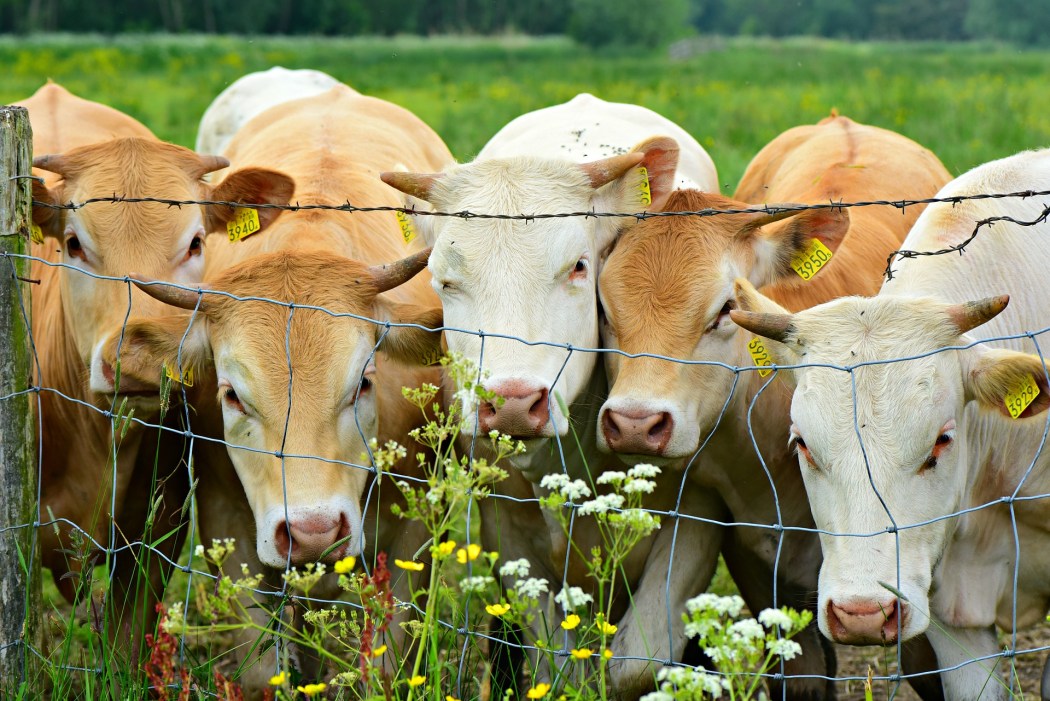By Ingrid Tsang and Isabel Dhillon
For those worried that their diet is helping fuel climate change, there is some good news – you don’t have to give up meat altogether to make a significant difference.
While evidence shows that going vegetarian or vegan generally decreases your dietary footprint, this is not a choice available to everyone. Undoubtedly, it is also a big step which not everybody (including ourselves) feels prepared to take.
Chickens are also nearly seven times more efficient at converting feed to animal protein compared to cows and sheep. Thus, making even small environmentally conscious dietary choices can have a big impact on our carbon emissions.

Research has also found that dietary change is essential to meet the two degrees Centigrade goal which governments around the world have signed up to.
Subscribe to HKFP's twice-weekly newsletter for a concise round-up of local news and our best coverage. Unsubscribe at any time - we will not pass on your data to third parties.
Processing… Success! You're on the list. Whoops! There was an error and we couldn't process your subscription. Please reload the page and try again.A study by Cambridge University concluded that if our dietary consumption continues unabated, food production (of which livestock is a large contributor) alone will equal or even exceed the 2050 greenhouse gas emissions target. All other sectors would have to reach zero emissions to achieve the two degrees goal, a virtually impossible feat.
Project Drawdown, a nonprofit dedicated to reviewing and analysing climate solutions, determined that plant-rich diets have the third or fourth greatest potential to reduce our carbon emissions. They predicted that shifting to a more plant-based diet could reduce 65.01 to 91.72 gigatons of emissions between 2020 and 2050. To put this into perspective, they found that switching to electric cars could reduce emissions by 11.87 to 15.68 gigatons within the same period.
So while your individual changes may seem small, our collective impact is crucially important for the health of our planet.
Many Hongkongers are heeding this call. A biennial survey on their perceptions about plant-based diets found in 2020 that 34 per cent practise “flexitarianism,” up from just 5 per cent in 2008 and 22 per cent in 2016. A flexitarian diet means reducing consumption of animal-based protein without completely cutting it out. This provides a greater level of flexibility without the pressure of committing to a permanent diet.

Research in behavioural science suggests that your dietary changes can have an even bigger impact on others than you may think.
In our daily lives, we often look to other people’s actions and beliefs to judge what is good and effective behaviour. Studies suggest that by embracing a more plant-based diet, you can help to reinforce this norm in the eyes of your peers, offering a powerful signal for them to follow suit. Given that we eat several times a day and often in social settings, this impact becomes even greater.
Not only is a more plant-based diet better for the environment, the health benefits are numerous. Research has shown that eating more plant-based foods helps boost your immune system and reduce inflammation, while also lessening your risk of certain cancers, heart disease, stroke and diabetes.
Want to embrace a more plant-based diet but not sure where to start? Simple ways to cut back on meat consumption include eating it in smaller portions, removing meat from several meals each week, or substituting meat with a plant-based alternative (such as OmniPork or Beyond Meat). Think OmniPork dumplings, Beyond spaghetti bolognese or vegetarian dim sum.

As plant-based diets gain popularity in Hong Kong, restaurants, cafes and supermarkets are quickly following suit with more vegetarian and vegan options. Last September, Starbucks launched its first plant-based food and drink menu, including meal options made with the Impossible sausage.
Green Monday, the Hong Kong-based company behind OmniPork, has partnered with 7-Eleven, McDonald’s, Pizza Express, and Crystal Jade, among many others, to incorporate plant-based options into their menus.
This goes to show that eating a plant-based diet doesn’t have to be difficult or inconvenient. It can simply be a conscious choice that you make as you go about your day. And it can start small, like committing to eating meatless once a week, or getting oat milk instead of dairy milk with your morning coffee.
This Earth Month and beyond, we can reap the benefits of moving towards a more plant-based diet, which is less carbon-intensive and better for your health. Remember, you don’t have to go full vegan or vegetarian to make a significant impact!
Ingrid Tsang is a third-year majoring in Computer Science with an emphasis in Environmental Analysis at Harvey Mudd College in Claremont, California, where she is co-sustainability director in the student government. She has lived in Hong Kong most of her life and graduated from Chinese International School in 2018. Isabel Dhillon is a second-year dual Psychology and Economics major at Scripps College in Claremont, California. She is from Fullerton, California.